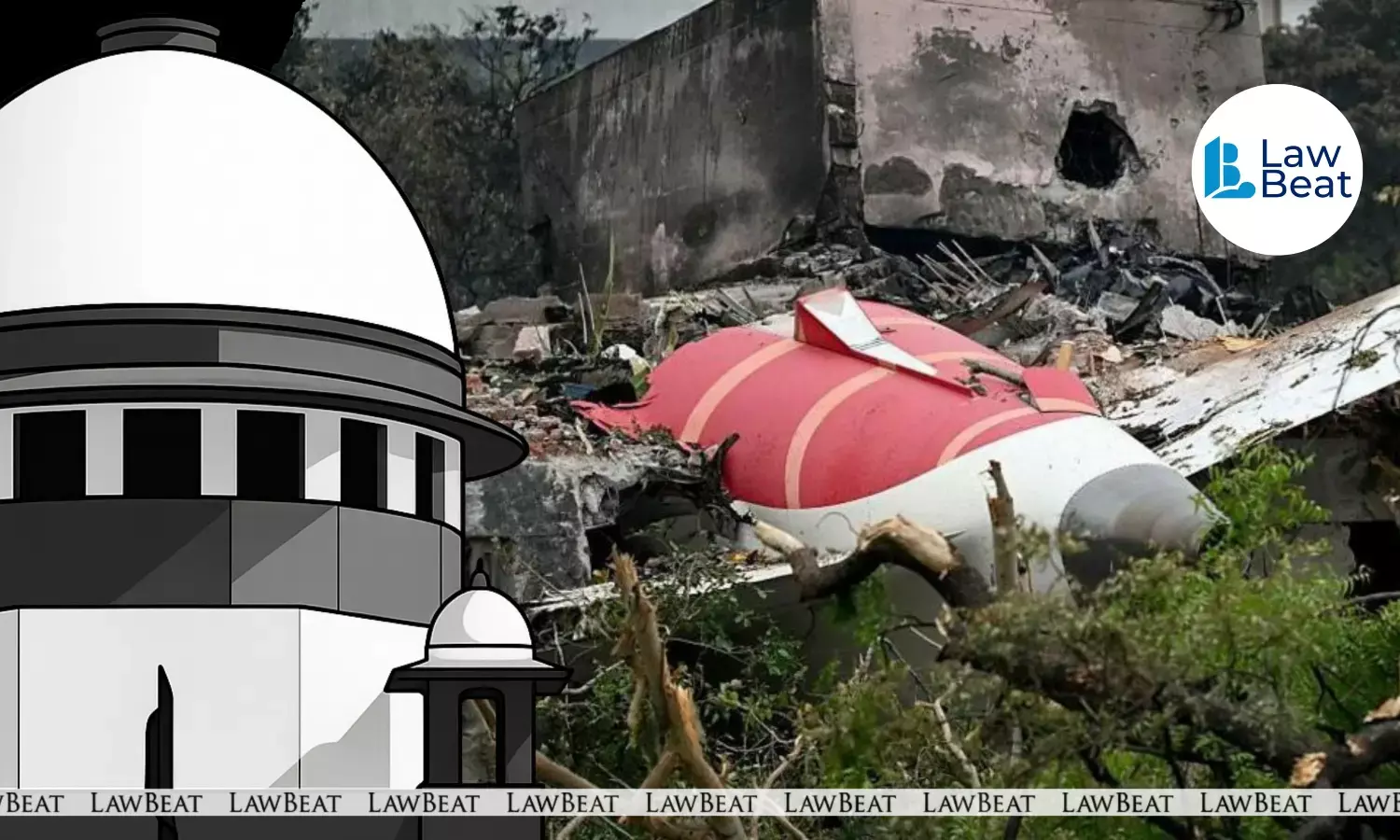Air India Crash: PIL in Supreme Court Seeks Black Box Data Disclosure and Independent Probe Into Ahmedabad Tragedy

The ill-fated Dreamliner, operating as Air India Flight AI171 from Ahmedabad to London Gatwick, crashed shortly after takeoff on June 12, 2025, killing 229 passengers, 12 crew members, and 19 individuals on the ground
A public interest litigation has been filed before the Supreme Court under Article 32 of the Constitution seeking complete disclosure of data retrieved from the black boxes of the crashed Air India Boeing 787-8 Dreamliner (VT-ANB) and the appointment of independent professionals to oversee the investigation into the Ahmedabad air disaster of June 12, 2025, which claimed over 260 lives, including passengers, crew, and people on the ground.
The petition, filed by Safety Matters Foundation, a non-governmental organization dedicated to promoting aviation safety, raises grave concerns over the selective and incomplete disclosures made by the Aircraft Accident Investigation Bureau (AAIB) in its preliminary report.
The petition filed through AoR Pranav Sachdeva argues that the report prematurely attributes the accident to alleged pilot error while overlooking documented systemic and technical anomalies, thereby undermining transparency, accountability, and aviation safety.
The ill-fated Dreamliner, operating as Air India Flight AI171 from Ahmedabad to London Gatwick, crashed shortly after takeoff on June 12, 2025, killing 229 passengers, 12 crew members, and 19 individuals on the ground. The aircraft, manufactured in 2013 and powered by GEnx-1B70 engines, had a valid Airworthiness Review Certificate at the time of the accident.
While the AAIB released its preliminary report on July 12, 2025, attributing the crash to the sudden transition of both fuel cutoff switches from RUN to CUTOFF, the petitioner claims the report is riddled with gaps. Sensitive technical information had already appeared in the Wall Street Journal before the report’s release, raising fears of selective leaks and compromised integrity.
The petition highlights several deficiencies in the AAIB’s preliminary report, including:
1. Selective disclosure of cockpit voice recordings – The report paraphrased extracts without publishing full transcripts or timestamps, creating an impression biased towards pilot error.
2. Failure to address known technical vulnerabilities – Despite a U.S. FAA advisory (SAIB No. NM-18-33) warning of potential disengagement in the Boeing 787’s fuel control switch locking mechanism, Air India had not conducted inspections, and the report failed to scrutinize this lapse.
3. Ignoring electrical anomalies – Data showed Bus Power Control Unit faults and deployment of the Ram Air Turbine (RAT), indicating severe electrical instability, yet these findings were sidelined.
4. Overlooking automatic relight attempts – The engines attempted multiple relights, suggesting transient faults rather than deliberate human action, but the report dismissed these findings.
5. Unexplained destruction of an Enhanced Aircraft Flight Recorder (EAFR) – One of the two recorders sustained unusual thermal damage, raising questions the report did not address.
6. Suppression of survivor testimony – The sole surviving passenger described flickering cabin lights and electrical failures moments before the crash, contradicting the pilot error narrative, but his statement was omitted.
The petitioner further alleges a conflict of interest in the investigating team, as three of the five members are serving officers of the Directorate General of Civil Aviation (DGCA). Since the DGCA is directly responsible for certifying the aircraft and monitoring Air India’s operations, its officials’ presence compromises the independence of the inquiry.
The petition stresses that under Annex 13 of the Chicago Convention, to which India is a signatory, investigations must be independent, impartial, and aimed solely at preventing future accidents; not at apportioning blame. By failing to meet these standards, India risks undermining global trust in its aviation safety regime.
The Safety Matters Foundation seeks directions from the Supreme Court to:
-Make publicly available the complete data retrieved from both black boxes.
-Appoint independent experts to oversee the ongoing investigation.
-Ensure compliance with international obligations under Annex 13 of the Chicago Convention.
Case Title: Safety Matters Foundation v. Union of India
Bench: Supreme Court of India (hearing expected)
